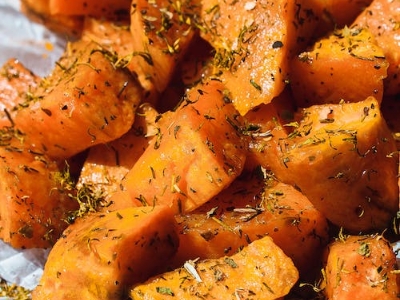Managing GERD During Thanksgiving

Thanksgiving is probably the most anticipated meal of the year, but it can cause discomfort for people who have GERD. To minimize the attacks or this condition, ensure to plan ahead your menu to celebrate thanksgiving with gladness.
What is GERD?
GERD is a disease that can lead to damage and, eventually, complications to the esophagus over time. It occurs when stomach acid repeatedly flows back into the tube connecting your mouth and stomach. It can interfere with daily living, but most people can get relief from it through lifestyle changes, home remedies, and medical treatment.
Symptoms of GERD
A burning sensation in your chest, usually after eating, which might be worse at night or while lying down:
- Trouble swallowing
- The sensation of a lump in your throat
- The backwash of food or sour liquid
- Upper abdominal or chest pain
If you have nighttime acid reflux, you might also experience:
- An ongoing cough
- Inflammation of the vocal cords
- New or worsening asthma

What Not to Eat or Drink If You Have GERD?
- Chocolate
- Mint
- Carbonated drinks
- Alcohol
- Fatty foods
- Spicy foods
- Tomatoes
- Coffee
- Citrus fruits and juices
- Fried foods
Navigating GERD To Enjoy Thanksgiving
You can also make some strategic decisions about the Thanksgiving meal to prevent symptoms. Experts suggest eating earlier in the day to allow more time to digest the meal. Alcohol is a trigger for many people, so you may want to avoid alcohol or just have a small glass of wine with your early meal.
Tips to Avoid GERD Attacks on Thanksgiving
- Consider pre-medicating. If you have been taking medications with lifestyle modifications, ensure that you have OTC medication prepared to reduce the amount of acid your stomach produces as you digest.
- Maintain a healthy weight. Excess pounds put pressure on your abdomen, pushing up your stomach and causing acid to reflux into your esophagus.
- Skip the drinks. Both alcohol and caffeinated beverages relax the lower esophageal sphincter, the barrier between your stomach and esophagus that opens and closes to allow food to enter your stomach or acid to creep upward. It increases production and inflames the stomach lining, increasing the likelihood of symptoms.
- Practice portion control. Avoid overeating because it triggers attacks. Stop eating before you get extra full or eat way too much.
- Be cautious with alcohol. It can lower your inhibitions and makes you more likely to have that second helping of stuffing after all.
- Do not lie down after a meal. Wait at least three hours after eating before lying down or going to bed. Eat food slowly and chew thoroughly.
- Take a walk instead of sleeping. Lying down right after a meal perfectly positions your body for acid to sneak into your esophagus. A better plan is to go for a walk to aid your digestion and wait at least three hours after eating before crawling into bed.
- Identify the risk factors. Certain foods are more likely to worsen acid reflux and heartburn. These include fatty foods, spicy foods, onions, garlic, caffeine, chocolate, citrus fruits and juices, and mints. Avoid these triggers to enjoy the celebration.
Recipe That Doesn’t Trigger GERD

Whipped Sweet Potatoes
Ingredients:
- 4 large sweet potatoes
- 1 cup almond milk
- 1 tablespoon nutritional yeast
- 1 tablespoon maple syrup
- ½ teaspoon cinnamon
- 1 teaspoon garlic powder
- Salt and pepper to taste
- ½ cup of toasted pecans
Cooking Instructions:
- Heat oven to 395 degrees Fahrenheit.
- Pierce your sweet potatoes multiple times with a fork and wrap them in foil and bake them for about 30 minutes.
- Allow the potatoes to cool, then peel and transfer them to a blender or food processor.
- Add in almond milk, yeast, cinnamon, maple syrup, garlic powder, salt, and pepper.
- Blend or process until nicely whipped.
- Scoop into a serving dish and top with toasted pecans
Medication Used for GERD
Esomeprazole. It is a Proton Pump Inhibitor that reduces gastric secretion. It reduces the amount of acid your stomach makes and treats indigestion, heartburn and acid reflux, and gastroesophageal reflux disease.



